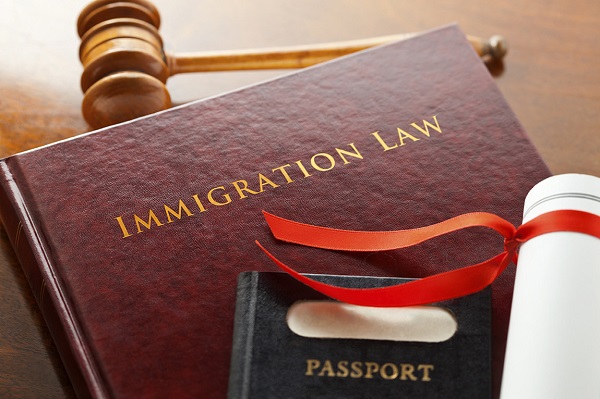
Navigating the complexities of immigration law can be daunting, and it’s natural to have questions. This article aims to provide answers to some of the most common immigration law questions people have. By addressing these inquiries, we hope to offer clarity and guidance to individuals seeking information about immigration laws. Whether you’re considering moving to a new country, sponsoring a family member, or applying for a visa, understanding the basics of immigration law is crucial. Read on to find answers to the immigration law questions you may have.
Table of Contents
Who Can Apply for a Visa?
One of the most frequently asked immigration law questions revolves around visa eligibility. Individuals interested in visiting or residing in a foreign country often wonder who can apply for a visa. The answer varies depending on the country and the type of visa being sought. Generally, citizens of other countries who wish to travel, work, or study abroad may need to obtain a visa. Specific criteria such as the purpose of travel, duration, and financial requirements may apply. Consulting with an immigration lawyer or researching the immigration laws of the desired country can provide detailed information on visa eligibility.
What Are the Different Types of Visas?

Understanding the various types of visas is essential when dealing with immigration matters. Many immigration law questions revolve around visa categories and their specific purposes. Some common visa types include tourist visas, work visas, student visas, family-based visas, and refugee visas. Each visa category has its own set of requirements and restrictions. For example, a work visa may require a job offer from a sponsoring employer, while a family-based visa may necessitate a relationship with a citizen or permanent resident of the host country. Researching the specific visa categories applicable to your situation is crucial to determine the appropriate path for your immigration journey.
How Can I Sponsor a Family Member?
Family reunification is an important aspect of immigration law, and many individuals have questions about sponsoring their family members. The process and requirements for sponsoring a family member vary depending on the country’s immigration laws. Typically, immediate family members such as spouses, parents, and children may be eligible for sponsorship. The sponsoring individual must demonstrate financial stability and the ability to support their family member. Additionally, immigration laws may have specific requirements regarding the relationship between the sponsor and the sponsored individual. Consulting with an immigration lawyer is recommended to ensure a smooth and successful family sponsorship application.
How Can I Obtain Permanent Residency?

Gaining permanent residency is often a significant goal for many individuals considering immigration. The process and requirements for obtaining permanent residency differ from country to country. Generally, it involves meeting specific criteria, such as having a valid visa, demonstrating a clean criminal record, and showing evidence of integration into the host country. Permanent residency may provide various benefits, including the right to work and live in the country indefinitely. Seeking legal advice from an immigration lawyer can provide valuable guidance on the steps involved in obtaining permanent residency and ensuring compliance with immigration laws.
How Does the Immigration Process Work?
Understanding the immigration process is crucial for individuals embarking on an immigration journey. The process varies depending on the country’s immigration laws and the specific circumstances of the applicant. Generally, it involves submitting an application, providing supporting documents, and attending interviews or hearings. The immigration authorities review the application and assess the eligibility of the applicant. The timeline and complexity of the process can vary significantly. Researching the immigration laws and procedures of the desired country, consulting with an immigration lawyer, and ensuring timely and accurate submission of the required documents are key factors for a successful immigration process.
What Are the Consequences of Immigration Law Violations?
Adhering to immigration laws is essential to avoid legal complications and potential consequences. Violations of immigration laws can result in serious repercussions, such as deportation, fines, or even being barred from re-entering the country. It’s crucial to understand the rules and regulations related to visas, work permits, and other immigration requirements to prevent inadvertent violations. Seeking legal advice from an immigration lawyer and staying informed about any changes or updates to immigration laws are important steps to ensure compliance and avoid potential legal issues.
How Can an Immigration Lawyer Help?

When facing immigration law questions and concerns, enlisting the services of an experienced immigration lawyer can be highly beneficial. Immigration lawyers specialize in navigating the complexities of immigration laws and can provide guidance throughout the immigration process. They can help with various matters, including visa applications, family sponsorship, employment-based immigration, and legal representation in immigration court. An immigration lawyer can assess individual situations, provide personalized advice, and ensure compliance with the applicable immigration laws. Their expertise and knowledge can significantly increase the chances of a successful immigration journey.
How Can I Stay Updated on Immigration Laws?
Immigration laws are subject to change and can be influenced by various factors, including political shifts, economic conditions, and global events. Staying updated on immigration laws is crucial for individuals navigating the immigration process. Some reliable sources of information include government websites, immigration law firms, and reputable news outlets. Subscribing to newsletters or following relevant social media accounts can also provide timely updates. Additionally, consulting with an immigration lawyer on a regular basis ensures access to accurate and up-to-date information specific to individual cases.
Final Thoughts on Immigration Law Questions Immigration law questions
Immigration law questions are common among individuals considering a move to another country or dealing with immigration matters. By seeking answers to these questions, individuals can gain clarity and make informed decisions regarding their immigration journey. Remember that immigration laws can be complex and subject to change, so it’s important to stay informed and consult with an immigration lawyer for personalized advice. Each immigration case is unique, and having a solid understanding of the relevant laws and processes can help navigate the complexities and increase the chances of a successful outcome.
Conclusion
Being knowledgeable about immigration law questions empowers individuals to make informed decisions and ensures compliance with the laws of the host country. Whether it’s understanding visa eligibility, sponsoring a family member, or obtaining permanent residency, seeking guidance from an immigration lawyer and staying updated on immigration laws are vital steps. By addressing the common immigration law questions outlined in this article, we hope to provide a helpful resource for individuals embarking on their immigration journey.
Learn about: Experience the convenience and efficiency of AI-powered virtual assistants in finding the best immigration law firm for your needs.






